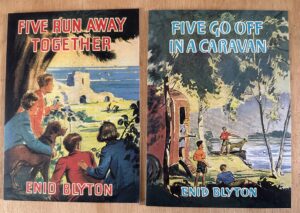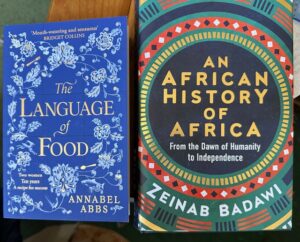 Have you ever enjoyed that feeling of “sinking into a book’? I have been an avid reader all my life. What really intrigues me is that, despite my narcolepsy, I am able to sit for hours just reading – so long as the book grabs my imagination. If I am trying to read a textbook of any sort for study purposes, I will be out like a light in a matter of minutes.
Have you ever enjoyed that feeling of “sinking into a book’? I have been an avid reader all my life. What really intrigues me is that, despite my narcolepsy, I am able to sit for hours just reading – so long as the book grabs my imagination. If I am trying to read a textbook of any sort for study purposes, I will be out like a light in a matter of minutes.
Today when Bookshop shelves are groaning with books it is hard to recall that time just after WWll when paper was short and new books were scarce. I remember the thrill of receiving a book – just ONE book – for my birthday. The pristine pages smelt of ink and the enticing colourful picture on the front cover invited the reader in. Every Saturday I walked to my local Library to find more stories to read.
Reading is still my default hobby. It is so easy nowadays to download a Book onto my Kindle and escape into another World for the evening. I favour straightforward “whodunits” over psychological stories. I do need to be able to get to sleep afterwards! To choose my books I usually read the brief summaries provided. So yesterday I downloaded another adventure for one of my detective heroes. I can’t say which one because towards the end there was a completely unexpected plot twist. Phew! What a surprise. The author specifically requested that readers should not tell. Why DO reviewers of both books and films so often write about the “surprise ending”? It spoils the surprise for everyone else.
With the recent death of historian CJ Sansom I have been working my way through his series set in Tudor times about a hunchback lawyer cum medieval detective, Matthew Sharldrake. Bearing in mind that these tales are a work of fiction, the historical setting does give a wonderful insight into the world of Tudor England. Most of us know about the Dissolution of the Monasteries but I, for one, had absolutely no idea of the devastating impact on the local population when a monastery was forcibly closed. The monks were forced onto the streets, the unlucky patients in the infirmary no longer had treatment. The lay workers were out of a job and the wealthy landowners often added the monasterial lands to their already large domains. Sansom skilfully guides Sharldrake through these troubled times, enabling him to dodge the vengeful actions of enemies and to survive religious upheaval and turmoil while solving the problems of his clients.
It’s midsummer already and I have only just got around to reading my Christmas books – mainly because they had become accidentally submerged beneath the piles of stuff from my Craft Room as I sort through the masses of yarns, fabrics and assorted paraphernalia associated with a textile hobby. I picked up the “Language of Food”by Annabelle Abbs and very nearly put it down again. Who wants to read such a boring book? I could not have been more wrong! Abbs sets her story in the time of the cookery book writer, Eliza Acton. She weaves her tale around the historic facts of the late 1830’s with her imagined life of Acton as she sets about testing recipe to add to her book. Fascinating – and enjoyable. Suffice to say that the more well-known cookery writer, Mrs Beeton, plagiarised several of Eliza’s recipes for her own book.
What am I reading now? Well, I heard the author Zainab Badawi talking on Radio 4 about her book “An African History of Africa” so I went out and bought a copy. So much of the history of Africa that I was taught was based on the views of white settlers. How refreshing and illuminating it would be to read a work by an author with a different perspective. Africa is a vast continent, so I am looking forward to see which aspect of history Badawi focuses on . . .
 Follow
Follow
Leave a Reply